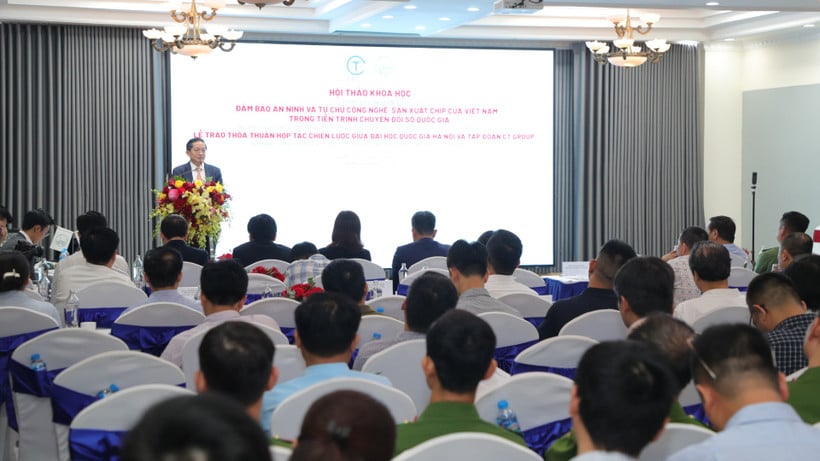
Attending the event were the Board of Directors of Hanoi National University, representatives of agencies under the Ministry of Public Security , the Ministry of National Defense, member units, leading scientists, high-tech experts and CT Group.
The workshop is the first forum in Vietnam to systematically approach the issue of chip technology security and autonomy, while connecting management agencies, universities, research institutes and businesses to find solutions to develop the Vietnamese semiconductor ecosystem.
At the workshop, experts and scientists on the future of Vietnam's semiconductor chip industry shared, discussed, and proposed future chip research directions and issues of ensuring security and technological autonomy.
Professor, Dr. Tran Xuan Tu, Director of the Institute of Information Technology, Vietnam National University, Hanoi, shared the research results on designing low-power secure chips for IoT (Internet of Things) and emphasized the trend of pushing artificial intelligence to the edge (edge AI) to reduce the load on the central system, as well as developing hardware encryption cores to ensure data security right from the terminal device.
On that basis, Professor, Dr. Tran Xuan Tu believes that the "three-way" cooperation between universities, businesses and management agencies, to promote technology transfer and train high-quality human resources, will bring Vietnam deeper into the global value chain.
Associate Professor, Dr. Mai Anh Tuan, University of Technology, Vietnam National University, Hanoi pointed out that countries and territories such as Taiwan (China), South Korea, Japan, Singapore and China have held and dominated up to 80% of the important stages of the global semiconductor value chain.
Putting Vietnam on this map, our country has advantages in terms of geographical location, stable political environment, and the presence of many large electronics corporations such as: Samsung, LG, Foxconn, Amkor. However, Vietnam is still at the foundation level of the ecosystem, mainly importing most of its materials and equipment. Hanoi National University, with its strength in multidisciplinary training, can play a role in providing elite human resources in key areas such as materials, chemicals, mechanics and artificial intelligence.
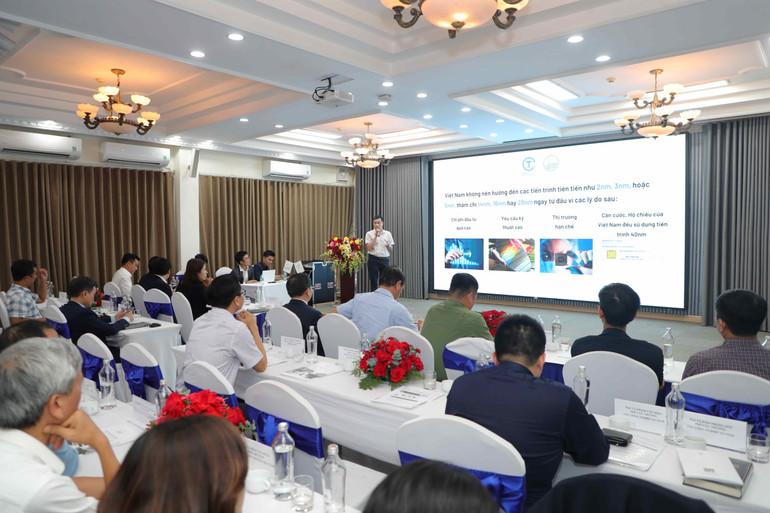
Sharing about the domestic chip ecosystem, Associate Professor, Dr. Thai Truyen Dai Chan, member of the Scientific Council of CT Group, emphasized that in the digital age, semiconductor circuits have become a fundamental element, considered the "brain of the world". Semiconductor chips are the control center of all activities of the digital economy.
The current global chip war is not only commercial in nature but is essentially a fierce geopolitical competition, with profound impacts on many countries.
Therefore, Vietnam should not compete directly in the ultra-advanced chip segment, which requires huge investment capital and technology platforms, but focus on practical areas that are suitable for current capabilities, including: low- and medium-power chips for sensors, smart devices and 6G infrastructure; security circuits for e-government, defense and smart identification; specialized circuits (ASIC, FPGA) for smart transportation, artificial intelligence at the edge and defense applications; as well as energy and electric vehicle chips.
Speaking at the workshop, Director of Hanoi National University Le Quan affirmed that Hanoi National University has pioneered and early implemented the “three-house” cooperation model, focusing on innovation and substantive cooperation. According to him, the mission of Hanoi National University is also clearly shifting: from the cradle of basic science to the cradle of science and technology, linking research with the professions and fields of the times.
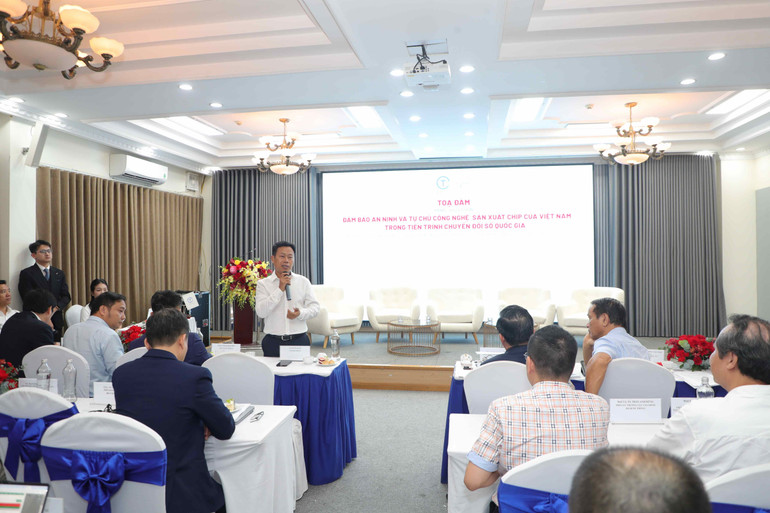
Director Le Quan added that Hanoi National University focuses on training human resources for key industries; in particular, it pays special attention to strategic fields such as semiconductors, nanotechnology, quantum technology, etc. and identifies these as pillars for the future.
Vietnam National University, Hanoi is currently expanding its international cooperation strongly in cutting-edge technology fields; recently, Vietnam National University, Hanoi and Moscow State University of Information and Communications Technology, Russia (MTUCI) have cooperated in training Master of Quantum Communications and UAV programs.
At the same time, many leading professors from Tsinghua University (China), unicorn technology companies with billion-dollar valuations, as well as quantum experts from Russia, have been invited to be co-directors of the newly established Institute of Artificial Intelligence and Institute of Quantum of Hanoi National University.
This is a testament to the strategy of deep international integration and the determination to build a world-class science and technology center. Hanoi National University wishes to dedicate an important space in Hoa Lac to develop a comprehensive research center, not only for semiconductors but also for quantum, artificial intelligence and many other new technologies.
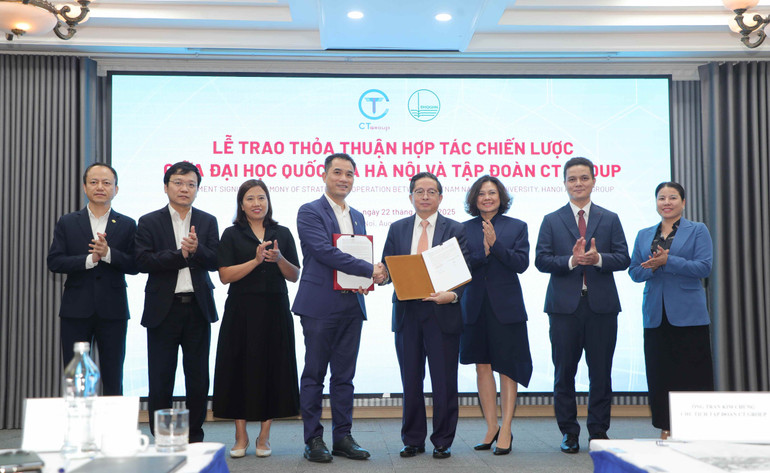
At the event, Vice President of Hanoi National University Pham Bao Son and Chairman of CT Group Tran Kim Chung signed the first phase of the strategic cooperation agreement. The agreement focuses on the following areas: cooperation in training and organizing courses according to orders; coordination in scientific research and organization of seminars; granting scholarships to students; creating internship and employment opportunities for students and supporting lecturers; and jointly exploiting the strengths of facilities and resources to develop new products and services.
The agreement also emphasizes the responsibilities of both parties, with Hanoi National University committing to prioritize CT Group in related research projects, promote the company's brand in cooperation programs, and introduce excellent students to CT Group. In return, CT Group will allocate financial resources for training, research, scholarship and personnel recruitment activities from Hanoi National University.
CT Group committed to accompany and support 100 billion VND to build a Joint Lab for research and training in the field of Robotics and intelligent control at Hanoi National University in Hoa Lac, ordering scientists from Hanoi National University to research new generation UAVs, renewable energy, chip manufacturing and quantum technology. This is considered an important resource to promote applied research and commercialization of technology products bearing the mark of "Made in Vietnam".
Source: https://nhandan.vn/bao-dam-an-ninh-va-tu-chu-cong-nghe-san-xuat-chip-post902935.html







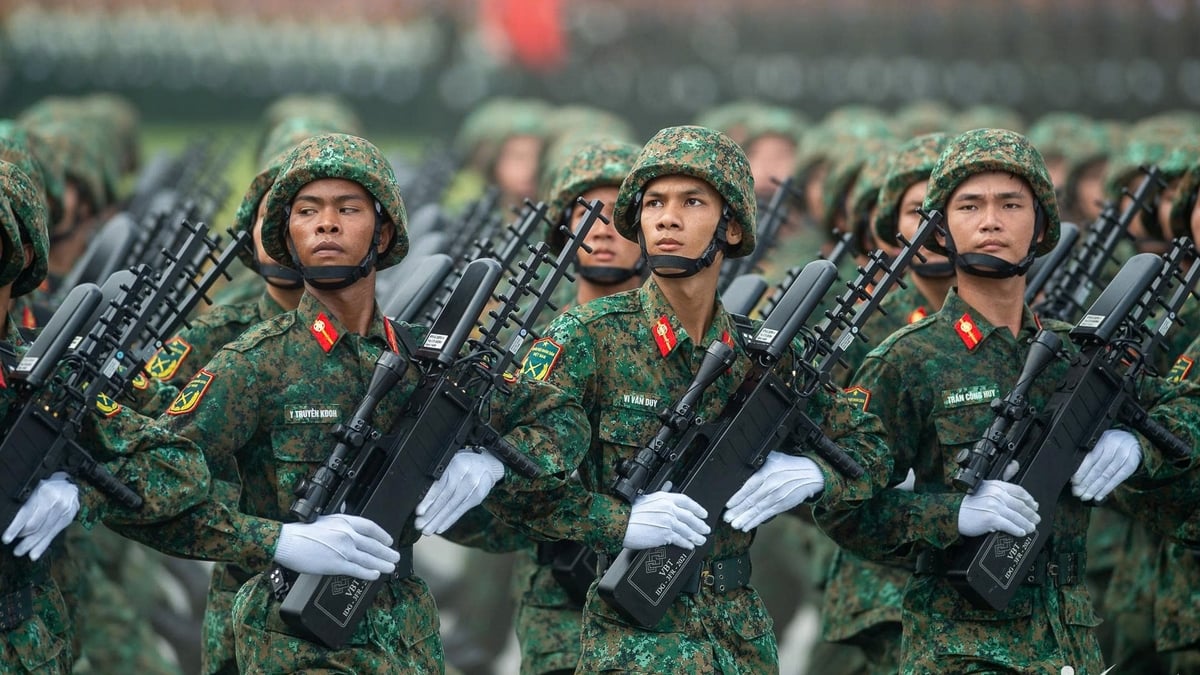




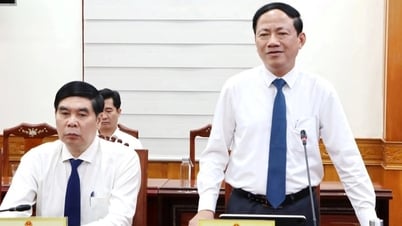



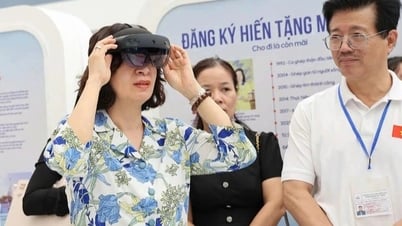




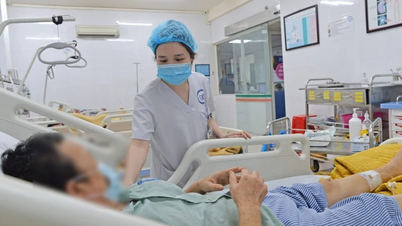

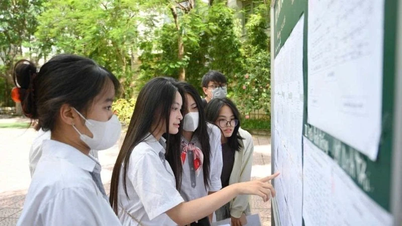

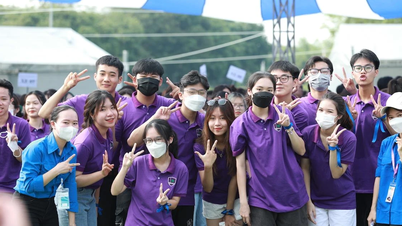
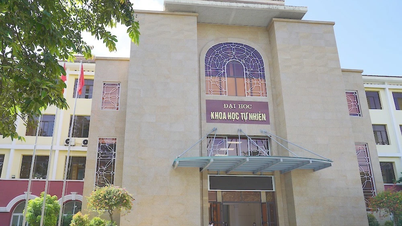
![[Photo] President Luong Cuong attends special political-artistic television show "Golden Opportunity"](https://vphoto.vietnam.vn/thumb/1200x675/vietnam/resource/IMAGE/2025/8/22/44ca13c28fa7476796f9aa3618ff74c4)


















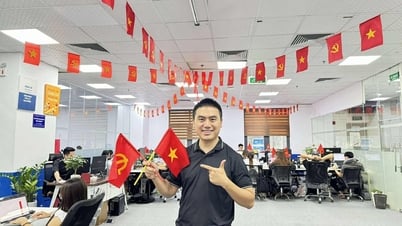














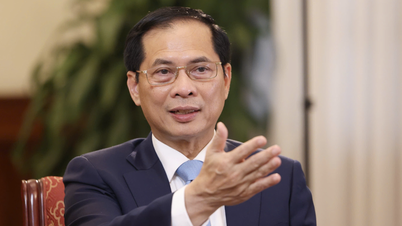

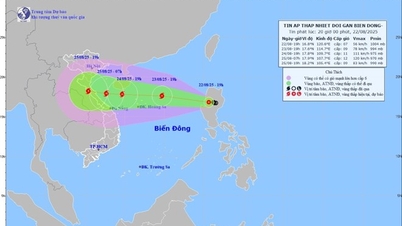

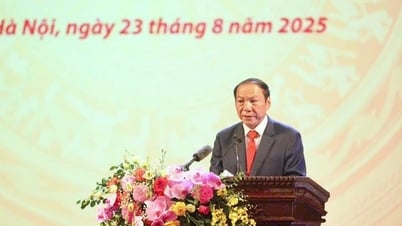


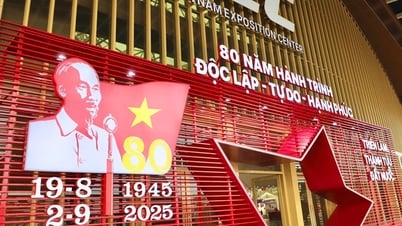
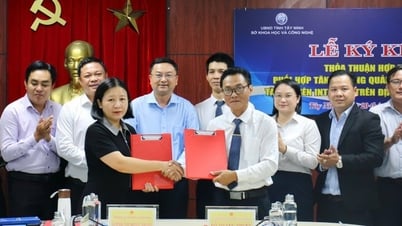


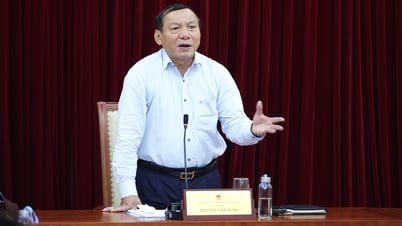
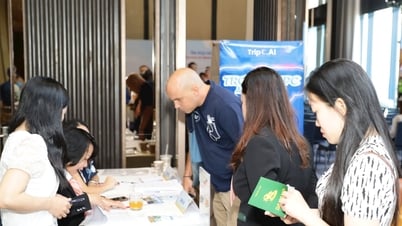





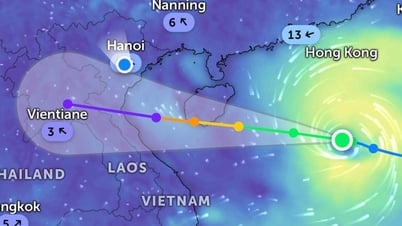



















Comment (0)